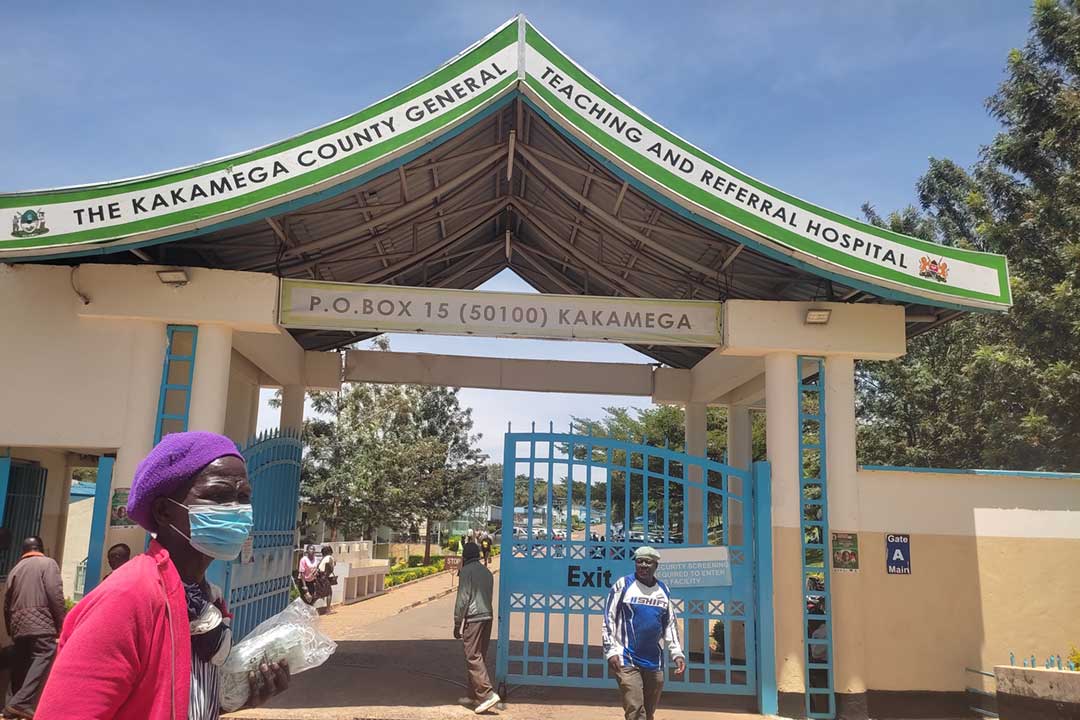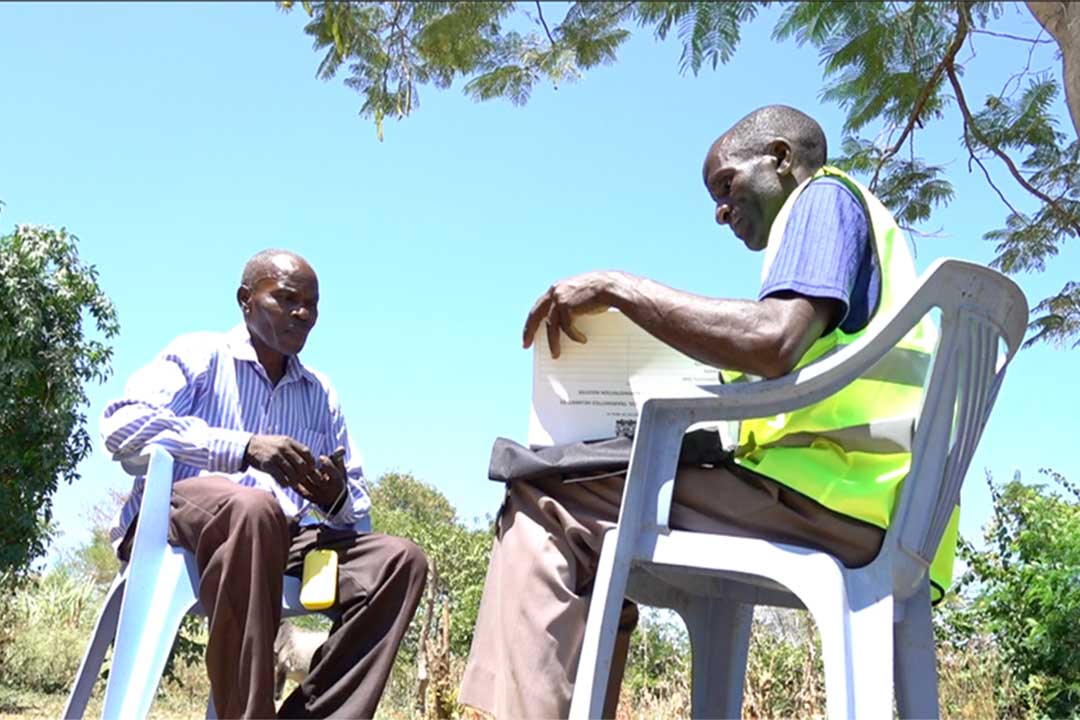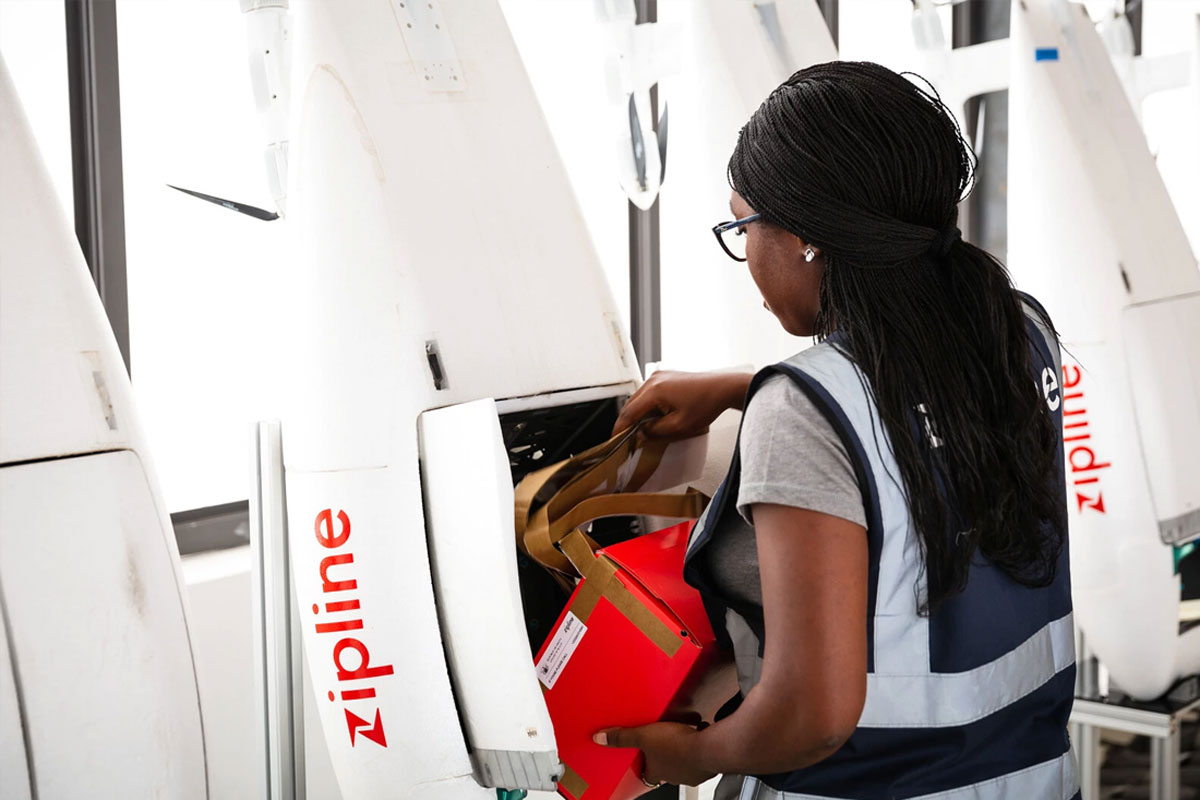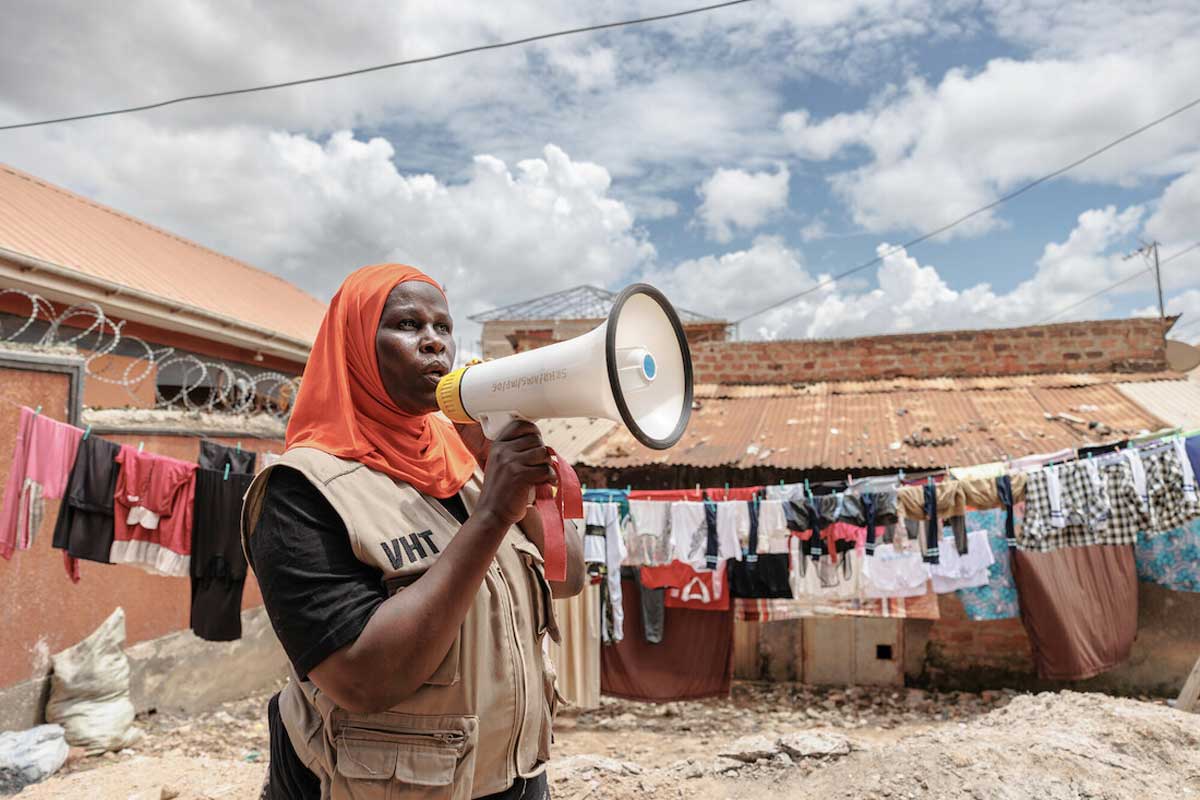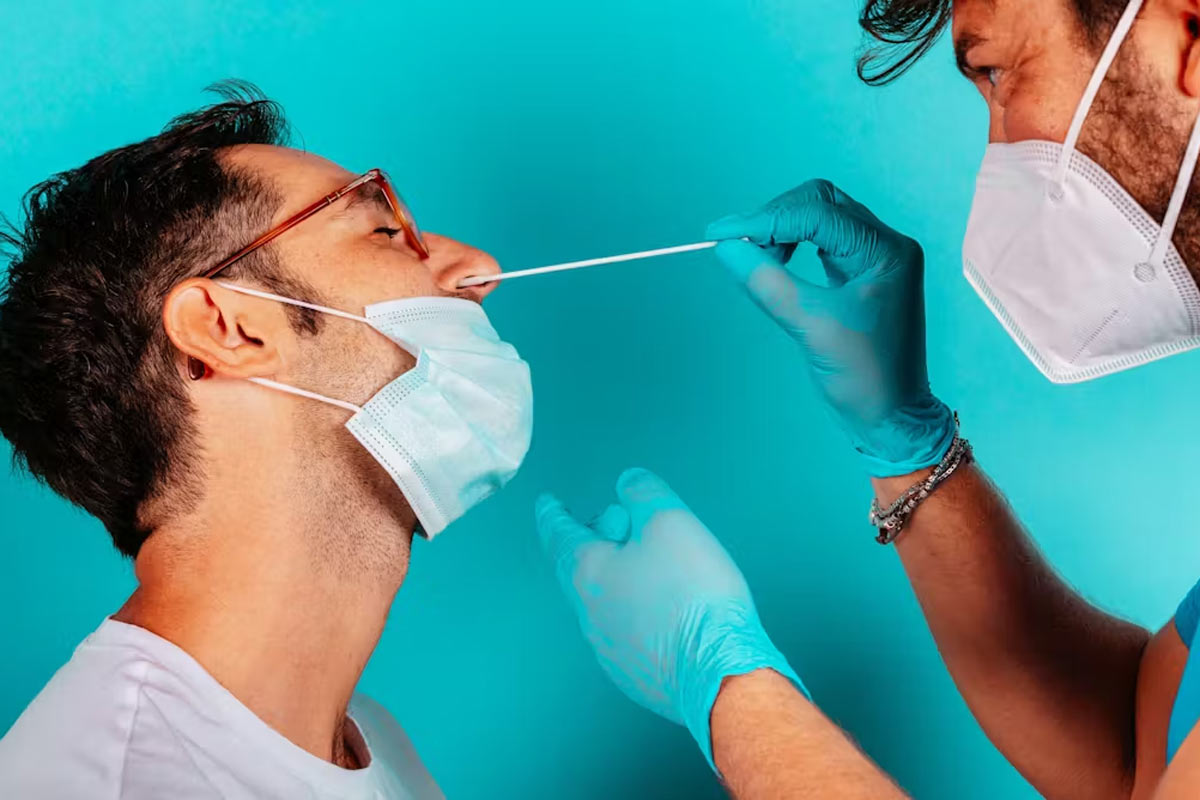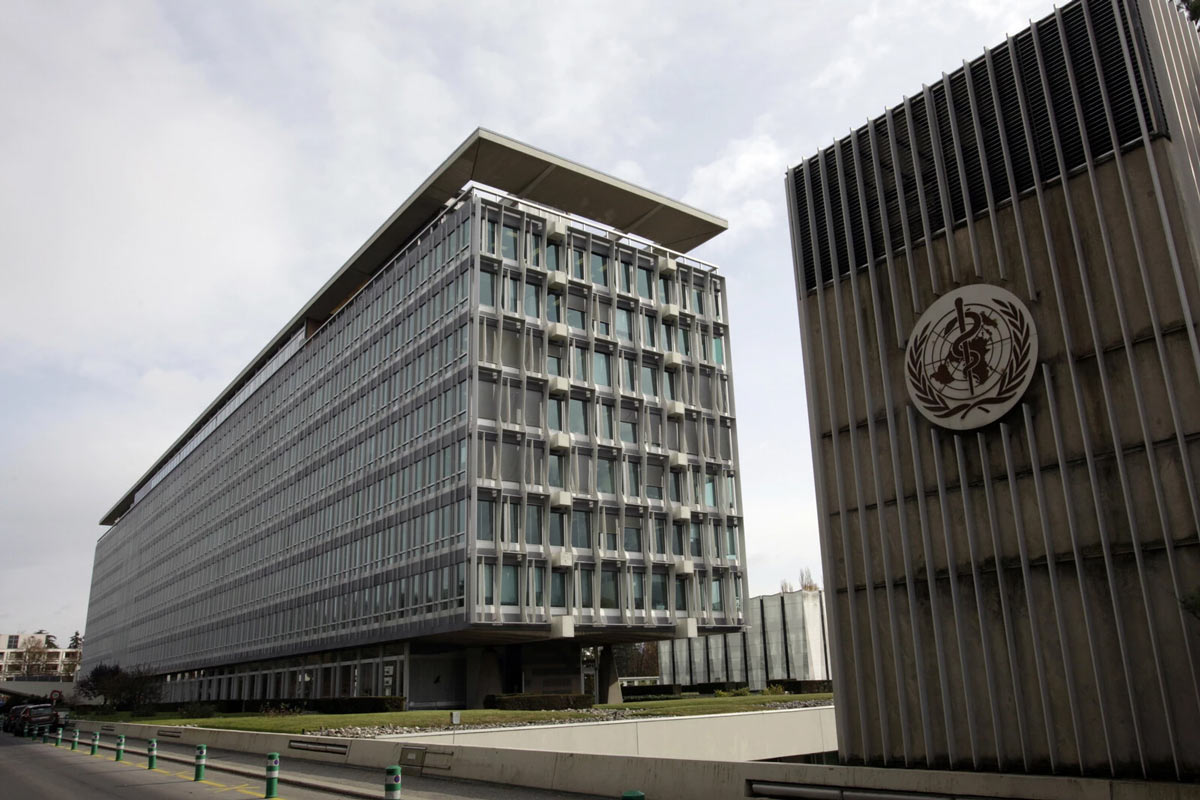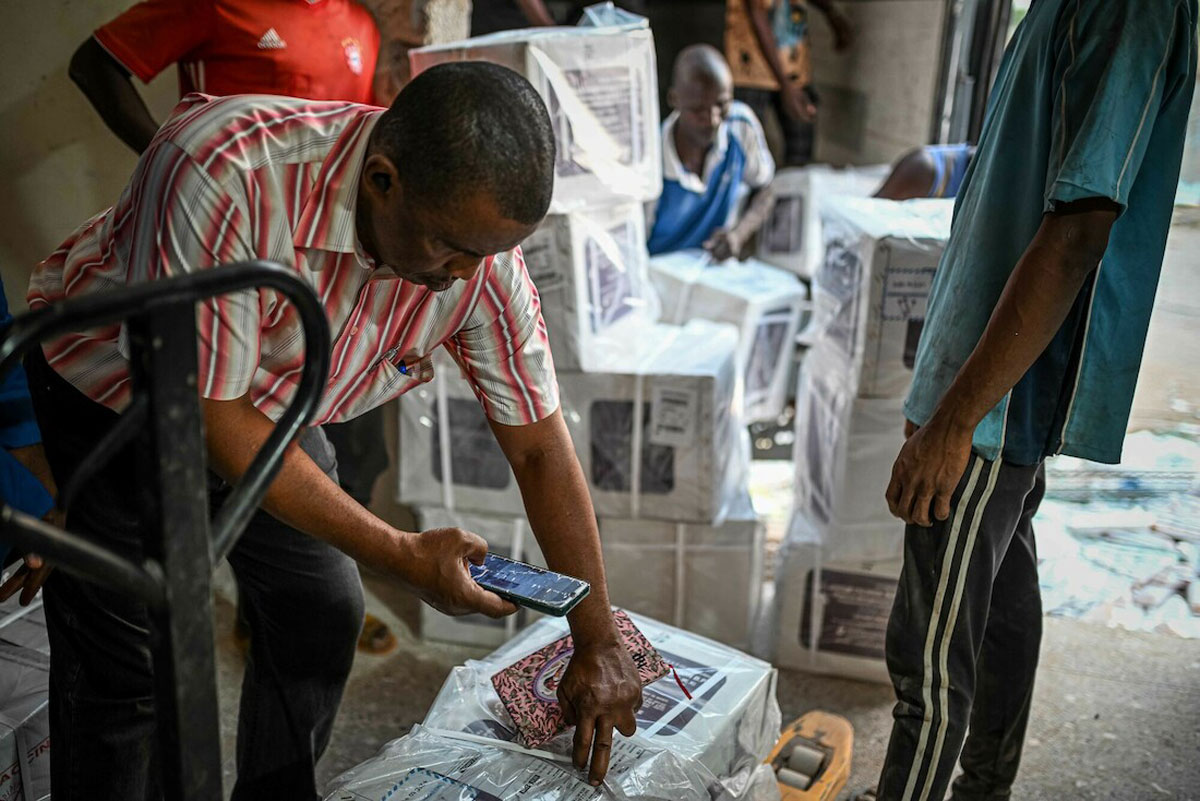The Kenyan community worker putting the “care” in healthcare
Grace Achieng’s first-born son missed out on all his vaccinations. The reason her younger children have been protected from the start is called Geoffrey Otieno.
- 1 September 2023
- 6 min read
- by Angeline Anyango
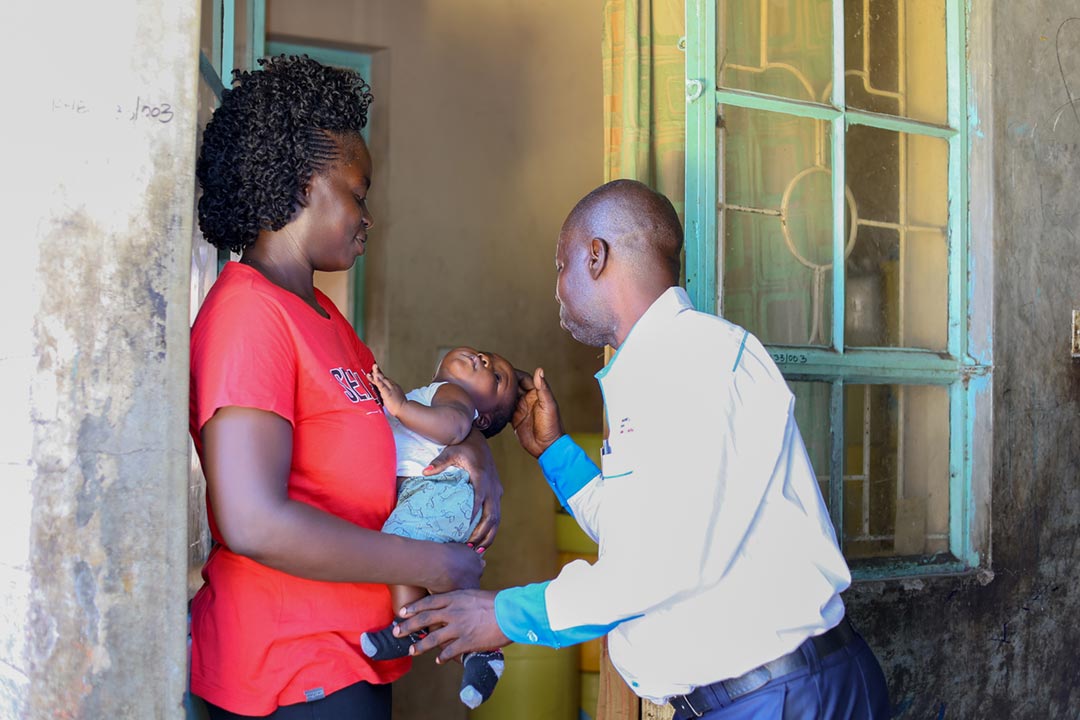
On 5 May 5 2023, the piercing cry of a newborn baby swept through the Ahero Sub County health facility, in Ahero, western Kenya.
The cry came as a relief. It had been a long, turbulent delivery: 24 hours of pain and effort for the mother, Grace Achieng. But this time, unlike during Achieng's first labour five years ago, mother and baby were watched over by the attentive, expert eyes of midwives and nurses.
"I am pained whenever I remember my firstborn did not get the privilege of getting all his immunisations."
– Grace Achieng, mother of three
As midwives meticulously stitched up Achieng, her baby, a son, went through a series of rigorous, routine medical checks. A nurse administered a dose of Bacille Calmette-Guerin (BCG) vaccine, to protect against childhood tuberculosis, and polio drops to prevent infection with the paralysing virus. Mother and child would go home tired, but safe.
A healthy start
Three months later, baby David Shammer has received vaccinations protective against pneumococcal bacteria, which can cause pneumonia and meningitis, as well as jabs against diphtheria, tetanus, pertussis, hepatitis B and haemophilus influenza type B during routine check-ups at the same health facility.

Credit: Angeline Anyango.
"I am glad that my son has received the vaccinations he is required to have received at his age, and is now free from a number of diseases," Achieng reflects, preparing to breastfeed the baby in the living room of her rented house.
"I am pained whenever I remember my firstborn did not get the privilege of getting all his immunisations," she adds.
Shammer's eldest brother was conceived in 2017. Achieng, then 24 years old, carried the pregnancy to term without a single visit to a clinic, without a single consultation with a health worker. She thought nothing of it: barring a few back-aches, the pregnancy was smooth, and the health facility was inconveniently far away.
"I missed out on the routine check-ups and also failed to get my tetanus injection," says Achieng, referring to the tetanus toxoid vaccine that is routinely administered to Kenyan mothers.
She went into labour in a neighbour's house, and returned home hours later with a tiny infant in her arms. Disconnected from the health care system, her baby failed to receive his early childhood vaccines.
A transformational relationship
Nearly a year later, Achieng and her baby moved to Ahero, where she would encounter a man who would transform how she approached her children's health.
His name was Geoffrey Otieno, a community health volunteer (CHV) attached to Ahero Sub-County Health Facility, and when VaccinesWork visited Achieng and baby Shammer at home, he sat opposite the nursing mother, holding a health talk on malaria prevention.
"I met Mr Otieno just two weeks after I moved to Ahero from Oyugis, Homa Bay County [in 2018] and he has been a regular visitor since then," Achieng, a grocery vendor at Ahero market, recalls.
Have you read?
"I had not yet been registered for the monthly visits and so he made sure we were enrolled for the same. My first born son had also just turned 11 months. To [Otieno's] surprise, the boy was yet to receive a single dose of immunisations," she explains.
Otieno knew that meant that the boy was at serious risk. But encountering such 'zero-dose' children was not a rarity. Back in 2018, he would come across up to five children in a single village who had either missed all their vaccinations or had defaulted on due vaccines, Otieno recalls. He also came across a few cases of child deaths due to vaccine preventable diseases, especially during outbreaks.
Otieno spoke to the young mother, and soon she agreed to take her son to the nearby health facility for a first measles vaccine.
The following year, when Otieno made a routine visit to Achieng, she told him she was two months pregnant with her second child. Otieno made sure her details were noted down on a registry of pregnant women in the community, and issued her with a referral letter to an Ahero health facility for a clinic visit.
For Achieng, it was the start of a new rapport with the healthcare system."The relationship I have built with the CHV is the reason why I have been actively visiting the health facility while pregnant, and after childbirth," Achieng tells VaccinesWork.
"During his monthly visits, I would be educated on what to eat and how to exercise. I also got my tetanus injection, anti-malarial drugs, iron and folic acid supplements and general education on danger signs to look out for during gestation," says Achieng.
She adds that during the clinic visits, she underwent HIV/AIDS and other sexually transmitted diseases testing, blood pressure checks and deworming.
And by the time she conceived baby Shammer, Achieng didn't need to wait for Otieno to act as go-between. "When I conceived my last-born, I did not wait to inform the CHV but enrolled for an [antenatal clinic] immediately," says Achieng.
But that doesn't mean that the CHV and Achieng's expanding family have grown apart. On the contrary, their friendship is plain. As VaccinesWork speaks to the new mother, Otieno offers to hold baby Shammer, who falls asleep minutes later.
"Some of the children here often take off when they see me, due to fears that I might give them medicine," remarks Otieno."But I am sure they will understand why I do that when they are of age," says Otieno.
Personal changes, public health shifts
Otieno says that since 2018, the number of vaccine defaulters in his catchment area has reduced to"almost zero". Most parents and caregivers now understand the importance of vaccination, he explains.
That's at least in part because Achieng is not the only mother that Otieno has brought into the health care system."One of the main achievements we have made by tracking down expectant women is ensuring the newborns are delivered in health centres under the care of qualified health workers," Otieno says."This also ensures the babies get their first dose of vaccinations just after they are born."
"One of the main achievements we have made by tracking down expectant women is ensuring the newborns are delivered in health centres under the care of qualified health workers."
– Geoffrey Otieno, community health worker
CHVs like Otieno are entrusted with the role of ensuring every child under the age of five receives all the routine immunisations.
That takes careful tracking. He explains that through a partnership with the County Government of Kisumu and Living Goods, a non-governmental organisation, CHVs were given smartphones, which makes his job a lot easier.
He explains that previously, they were using notebooks to save records but they were bulky, and at times, important data would be lost.
The CHV says they have records of every expectant mother, including the details of their expected due date. He says the records act as a reminder of when to visit an expectant woman to ensure she attends ANC visits."We visit the women at their home within 24 hours of hospital discharge after delivery to know how they are faring and if the baby has been immunised," says Otieno.
It's an opportunity to sit down and talk – for Otieno to explain the vaccination schedule, and maybe, to help a new mother rock her baby to sleep.
